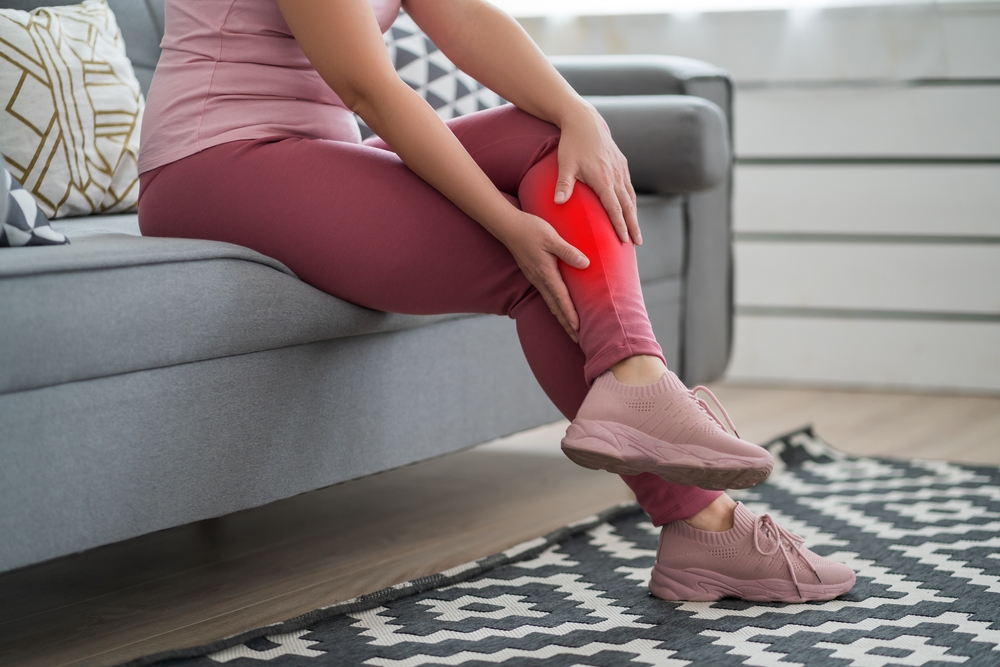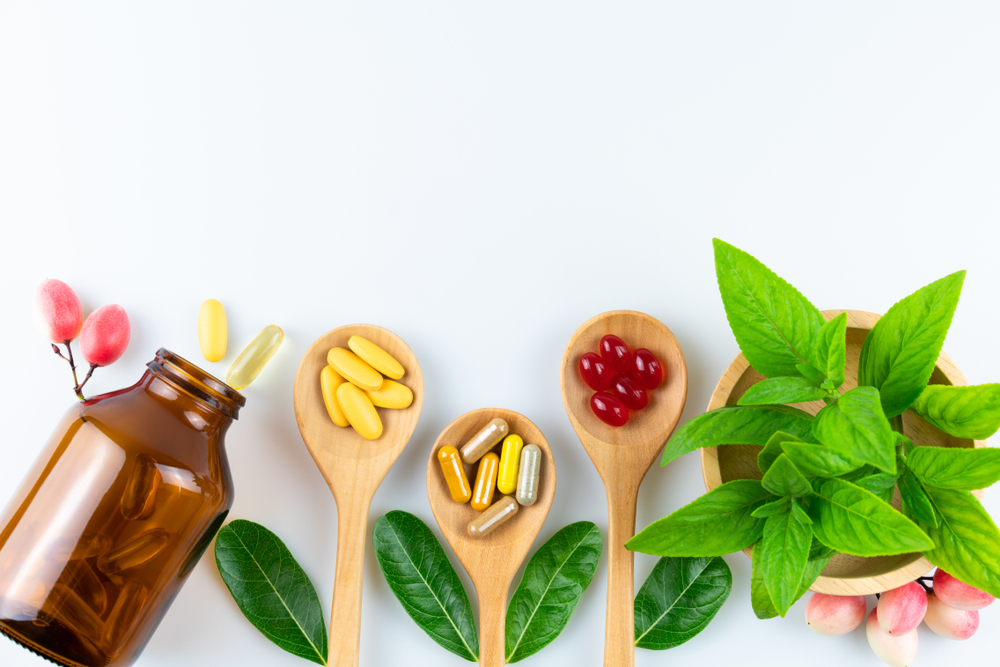DISCLAIMER: Always consult with a healthcare professional before starting new routines, programs, or nutrition plans to ensure you receive the best medical advice and strategy for your specific needs.
Having a drink or two makes us feel more sociable and outgoing, helping us break down barriers, initiate conversations, and connect with others. Plus, alcohol is an easily accessible and affordable form of entertainment.
Yet, alcohol consumption can have some serious health consequences as we age. That’s because our bodies may not be able to metabolize alcohol as effectively as they used to. For women transitioning to menopause, in particular, the enzymes responsible for processing everything consumed, including alcohol, are affected.
As our bodies may not be able to tolerate alcohol as effectively, this reduced efficiency can lead to the accumulation of toxins, triggering or worsening night sweats, hot flashes, and mood swings. Regular and heavy drinking also increases the risk of osteoporosis and breast cancer, which is already higher during menopause.
Based on the effects of alcohol on menopausal symptoms and the risks involved, some women may choose to quit or limit consumption at this stage of life. Helpful strategies include seeking support, staying busy, and planning for social situations.
And while quitting alcohol can be challenging indeed, it is achievable. With determination and the right tools, it is possible to make positive changes and feel better overall during this time of transition.
Effects of Alcohol on Women During Menopause
 With all the commitments that midlife women face, like aging parents, a successful but busy job, housework, and being a mum taxi, a hoppy IPA or two may seem like a form of self-care at the end of the workday. As juggling multiple roles can also be a source of stress, alcohol consumption can easily become a more frequent occurrence than is healthy.
With all the commitments that midlife women face, like aging parents, a successful but busy job, housework, and being a mum taxi, a hoppy IPA or two may seem like a form of self-care at the end of the workday. As juggling multiple roles can also be a source of stress, alcohol consumption can easily become a more frequent occurrence than is healthy.
Yet, alcohol can harm our health, especially with long-term and excessive use. Over time, it can lead to mental health problems and conditions like depression and anxiety, digestive problems, and liver and heart disease. Excessive amounts of alcohol are not beneficial for anyone’s health, but there may be particular higher risks during menopause. Such risks include exacerbation of hot flashes, mood changes, sleep disturbances, decreased bone health, and increased risk of breast cancer.
Let’s look at the risks of drinking alcohol for women over 40
Hot Flashes

While the mechanism underlying the relationship between alcohol use and hot flashes is not fully understood, most research has found a link between regular consumption and increased hot flashes.
One study, for example, examined the various factors that contribute to the occurrence of hot flashes during menopause. Conducted with 334 women of white and Afro-American descent, the study found that along with a higher body mass index and cigarette smoking, alcohol consumption can be a risk factor for hot flashes at natural menopause.
Another study explored the prevalence of hot flashes in perimenopausal women who had regular menstrual cycles and were in good health in their late reproductive years. Examining multiple environmental, behavioral, and hormonal factors, the study found that alcohol consumption is a significant predictor of hot flashes, as are factors like increased BMI and anxiety.
Emotional Symptoms
 As alcohol depresses the central nervous system, regular consumption can exacerbate symptoms of anxiety and depression during menopause.
As alcohol depresses the central nervous system, regular consumption can exacerbate symptoms of anxiety and depression during menopause.
For example, a recent large-scale study in South Korea explored the relationship between depression and alcohol consumption, smoking, and physical activity among post- and perimenopausal women. After examining the medical records of over 1.8 million women aged 40 or older, the researchers found that heavy alcohol consumption and smoking are associated with an increased risk for depression before and at menopause.
Physical inactivity was also found to be a risk factor for depression, further highlighting the importance of addressing modifiable lifestyle factors that may contribute to depression in midlife.
Sleep Disturbances
 Alcohol can disrupt sleep which can be a significant issue for menopausal women who are already struggling with sleep disturbances. A number of studies also show that regular consumption can disrupt sleep and cause insomnia.
Alcohol can disrupt sleep which can be a significant issue for menopausal women who are already struggling with sleep disturbances. A number of studies also show that regular consumption can disrupt sleep and cause insomnia.
One multinational study involving women aged 40 – 59 focused on the effect of problematic drinking on sleep quality. The study found that excessive alcohol use is strongly associated with sleep disorders and insomnia among midlife women. In fact, the researchers suggested that alcohol outweighs other factors such as the use of hypnotics, educational level, and vasomotor and mood symptoms.
Bone Health
 Heavy alcohol consumption can increase the risk of osteoporosis in the years preceding the onset of menopause. Excessive alcohol use during early adulthood and adolescence affects bone health, thus increasing the risk for osteoporosis.
Heavy alcohol consumption can increase the risk of osteoporosis in the years preceding the onset of menopause. Excessive alcohol use during early adulthood and adolescence affects bone health, thus increasing the risk for osteoporosis.
Furthermore, studies suggest that the effects of heavy alcohol consumption are irreversible, even among women who quit drinking. This is because excessive use affects the mechanical properties of bones while reducing their mineral density.
While heavy drinking is strongly associated with poor bone quality during the young adult years, regular consumption at midlife also affects bone health. Observational studies confirm that heavy drinking affects bone mineral density as women age.
One study, for example, examined the risk factors for osteoporosis among regular drinkers. The study found that women who drank alcohol more than 4 times a week had a lower bone mineral density than those with a lighter alcohol intake of 2 – 3 times a week.
Furthermore, research suggests that heavy alcohol consumption increases the risk of bone fractures in midlife. A 2022 study found that alcohol intake of 3 or more drinks daily is associated with a higher risk for hip fractures compared to up to 2 drinks daily. The study suggests that excessive consumption can be detrimental to bone health, thus increasing the risk for osteoporotic fractures.
Breast Cancer Risk
 There is some evidence to suggest that alcohol consumption may contribute to the development of breast cancer, and the risk may be higher for women who are going through menopause.
There is some evidence to suggest that alcohol consumption may contribute to the development of breast cancer, and the risk may be higher for women who are going through menopause.
Menopausal women are already at a higher risk due to a decline in progesterone and estrogen levels, the two hormones which play a role in proper breast function. Those who regularly consume alcohol face an even higher risk of breast cancer, including hormone receptor-positive tumors and invasive lobular carcinoma, slow-growing cancer that accounts for up to 15% of all cancer cases.
Should You Quit Alcohol During Menopause?
 Whether to quit alcohol during menopause depends on several factors, such as individual health status, age, family history, medications, and risk of injury. Your health status is a major factor in determining whether to quit alcohol. Women with conditions like breast cancer, hypertension, and liver problems must avoid drinking completely.
Whether to quit alcohol during menopause depends on several factors, such as individual health status, age, family history, medications, and risk of injury. Your health status is a major factor in determining whether to quit alcohol. Women with conditions like breast cancer, hypertension, and liver problems must avoid drinking completely.
Also, if you take medications such as sleep aids or antidepressants, they interact with alcohol and can cause harmful side effects.
Your age is also a factor in choosing whether to quit alcohol or not. Our ability to metabolize alcohol decreases with age, making it more difficult to tolerate even small amounts.
A family history of alcoholism is yet another factor that may require a more cautious approach, as women with such a history are more susceptible to alcohol addiction.
Lastly, women operating heavy machinery, driving, and other activities requiring alertness and coordination should avoid alcohol altogether.
And even if you don’t fall in any of the high-risk groups, quitting or moderating your alcohol consumption is always a good idea. Due to differences in enzyme production, fat percentage, and body size, women are more susceptible to experiencing the harmful effects of alcohol than men.
Support Strategies for Quitting Alcohol
Quitting or reducing consumption is ideal but can be challenging, especially for women who enjoy drinking socially. Yet, it can be less daunting and more achievable with the right strategies and support, making it worthwhile.
Set a Goal
 You need to first decide on a specific goal for quitting alcohol and write it down. This could be abstaining from alcohol for a certain period, like one month, three months, or one year. Alternatively, your goal could be to limit consumption to special occasions such as birthdays, holidays, and anniversaries.
You need to first decide on a specific goal for quitting alcohol and write it down. This could be abstaining from alcohol for a certain period, like one month, three months, or one year. Alternatively, your goal could be to limit consumption to special occasions such as birthdays, holidays, and anniversaries.
Reducing alcohol to a certain number of drinks per week is another achievable goal. For instance, you can limit your alcohol intake to 2 or 3 drinks a week, which can help reduce the negative effects of alcohol on your body.
Seek Support
 Reach out to family or friends for support when quitting alcohol. They can offer a listening ear and encouragement or serve as accountability partners to help you stay focused and on track with your goal.
Reach out to family or friends for support when quitting alcohol. They can offer a listening ear and encouragement or serve as accountability partners to help you stay focused and on track with your goal.
There are also some specific ways in which friends and family can help you quit alcohol. For example, they can plan events or outings that do not involve drinking or offer to participate in hobbies or activities like cooking classes, hiking, or yoga that do not involve drinking.
Friends and family can also help create a safe environment by removing alcohol from your home and avoiding places where it is available. They can help you celebrate successes and milestones so that you stay motivated and committed to your journey toward sobriety.
And if you need more structure or guidance, you can join support groups like SMART Recovery or Alcoholics Anonymous. Such groups create a non-judgmental and safe environment to share your experiences and receive support and guidance from others who have been through similar challenges.
A therapist can be an excellent resource if you need more personalized support. A therapist can help you identify and cope with any underlying issues that might be contributing to your alcohol use. In addition to helping you navigate any psychological and emotional challenges that led you to drink, a therapist can offer guidance and support throughout your recovery journey, helping you prevent setbacks and maintain your progress.
Identify Alternative Coping Strategies
 You must also identify effective coping strategies and mechanisms to manage stress and other triggers that might have led to drinking. They can help you to deal with difficult feelings, emotions, and situations in a healthy and constructive way, without turning to alcohol as a form of escape or relief.
You must also identify effective coping strategies and mechanisms to manage stress and other triggers that might have led to drinking. They can help you to deal with difficult feelings, emotions, and situations in a healthy and constructive way, without turning to alcohol as a form of escape or relief.
Depending on what works for you, this could be exercise, meditation, deep breathing, or other relaxation techniques. Exercise has been shown to improve mood, reduce anxiety and stress, and promote feelings of well-being. It can also help you build confidence and a sense of self-efficacy and control, making you better equipped to deal with the challenges of quitting alcohol.
In addition to regular exercise, relaxation techniques can effectively support your efforts to quit drinking. Techniques such as progressive muscle relaxation, meditation, and deep breathing can effectively cope with difficult emotions, negative self-talk, anxiety, and stress that might have previously led to drinking.
Make a Plan for Social Situations
 Social situations can be a challenging trigger for a number of reasons. First, they may involve exposure to others who are indulging in alcohol or encouraging drinking behavior.
Social situations can be a challenging trigger for a number of reasons. First, they may involve exposure to others who are indulging in alcohol or encouraging drinking behavior.
Second, in social situations like partying, social gatherings, and sports events, drinking alcohol is often seen as normative behavior, making non-drinkers feel stigmatized or excluded.
A third challenge is the association of social situations with socializing, celebration, and relaxation, making it more difficult to maintain sobriety. To avoid being caught off-guard by cravings and triggers, you’ll need to make a plan for social situations where alcohol is present and could compromise your sobriety.
To prepare effectively, you need to consider the specifics of the event, the expected activities and setting, and the people attending it. This will help you anticipate any challenges that may arise and develop strategies for managing triggers. Such strategies might include bringing your own non-alcoholic beverages like juice, soda, or sparkling water so you don’t feel left out.
Additionally, enlisting the support of a close friend can be an effective way to maintain your commitment to not drinking. This person should provide you with a supportive presence, detect and deflect social pressure to drink, and keep you accountable for your actions.
Lastly, you need an exit strategy for situations that trigger your urge to drink and make it easier to succumb to the temptation. Your exit strategy can be as simple as taking a short walk outside or taking a break to use the bathroom. Or it can be more elaborate, like having a signal or code word with a friend, indicating you need their help to exit the situation.
Stay Busy
 Staying busy and engaging in pastimes can be an effective strategy to maintain sobriety. This approach involves keeping yourself engaged and occupied with activities you enjoy, allowing you to avoid idleness which may lead to relapse.
Staying busy and engaging in pastimes can be an effective strategy to maintain sobriety. This approach involves keeping yourself engaged and occupied with activities you enjoy, allowing you to avoid idleness which may lead to relapse.
For example, engaging in physical activities like yoga, running, and hiking is a way to fill your time and prevent boredom and monotony, which can trigger the urge to drink.
Furthermore, when exercising, your body releases endorphins which positively affect your mental state and mood, helping you manage anxiety and stress.
In addition, exploring new creative outlets can be a great way to channel your emotions and energy in a positive direction, further helping you to maintain sobriety. Engaging in activities like developing painting skills or learning a musical instrument can help you process emotions and experiences creatively and healthily while offering a sense of accomplishment and purpose.
Overall, pursuing new interests can be a positive and fulfilling distraction, helping you resist the urge to drink.
Consider Medication
 Medication can be an effective tool to reduce cravings and mitigate the discomfort that accompanies withdrawal symptoms. You must be prudent when selecting a medication, however, as some drugs aim to alleviate the manifestations of withdrawal while others help curb the urge to drink.
Medication can be an effective tool to reduce cravings and mitigate the discomfort that accompanies withdrawal symptoms. You must be prudent when selecting a medication, however, as some drugs aim to alleviate the manifestations of withdrawal while others help curb the urge to drink.
As each medication has its unique mechanisms of action, you’ll need to consult with a qualified health professional who can customize the treatment to your specific needs. Depending on the severity, they may prescribe a combination of drugs to increase your chances of success. Yet, medication alone cannot guarantee full recovery and should be complemented with support systems or therapy to achieve optimal results.
Ultimately, quitting alcohol is a deeply personal journey that requires a customized approach. There’s no one-size-fits-all solution, and progress may not happen overnight. However, armed with strategies that resonate with you, you can successfully quit drinking and enhance your overall health and well-being during menopause. Just be patient with yourself along the way and take time to acknowledge even the smallest victories and accomplishments.
Wrapping Up
 The physiological changes that occur in a woman’s body at midlife make alcohol a risky and potentially harmful choice. As women age, their bodies become less efficient at metabolizing alcohol, which means that the same amount can have a greater effect on the body than it did in earlier years. Furthermore, alcohol can exacerbate the symptoms of menopause and increase the risk of cardiovascular disease, breast cancer, and osteoporosis.
The physiological changes that occur in a woman’s body at midlife make alcohol a risky and potentially harmful choice. As women age, their bodies become less efficient at metabolizing alcohol, which means that the same amount can have a greater effect on the body than it did in earlier years. Furthermore, alcohol can exacerbate the symptoms of menopause and increase the risk of cardiovascular disease, breast cancer, and osteoporosis.
For some women, quitting alcohol can be the best option, especially for those with a history of health problems or who are experiencing severe menopausal symptoms. And quitting drinking is ideal for all women who want to prioritize their health during this critical stage in life.
While it can be an empowering step towards better health, quitting alcohol can be challenging, making support strategies the key to navigating the transition. Seeking help through therapy, joining support groups, or making positive lifestyle changes can make quitting drinking less daunting and difficult and lead to a more fulfilling and positive menopause experience.


 By Team THOR
By Team THOR
